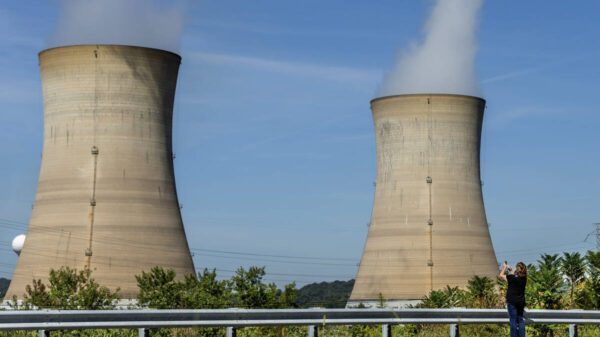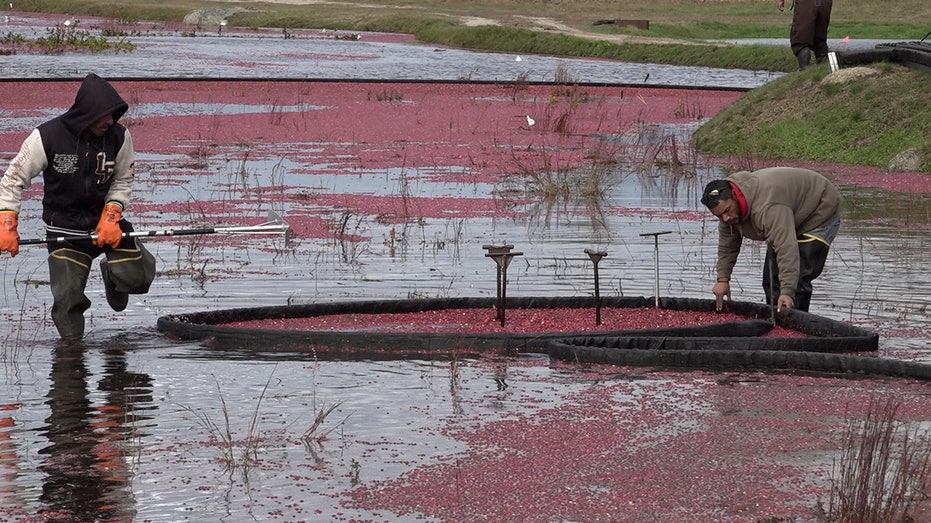UPDATE: Cranberry farmers in Massachusetts are feeling the strain of rising production costs, prompting some to retire their bogs and sell their land. This urgent trend comes as the state, the second-largest producer of cranberries in the U.S., faces economic pressures that could alter the landscape of the industry forever.
In Carver, Massachusetts, the peak season for cranberry harvesting reveals a stark reality for farmers. According to the Cape Cod Cranberry Growers’ Association, the cranberry industry contributes an astounding $1.7 billion to the state’s economy and supports nearly 6,400 jobs. However, the pressures are mounting for farmers like Jarrod Rhodes, a fourth-generation cranberry grower.
Rhodes, who operates Edgewood Bogs LLC and produces 50,000 barrels—equivalent to 5 million pounds—of cranberries annually, stated, “It kind of all adds up, and it becomes a lot more expensive to grow here versus Wisconsin or Canada.” The escalating costs are exacerbated by extreme weather patterns and high expenses related to labor, utilities, and real estate.
The stark contrast in production scale between Massachusetts and Wisconsin, which has over double the acreage, further complicates the situation. “Doing anything at scale tends to make it less expensive,” noted Karen Cahill, deputy executive director of the Cape Cod Cranberry Growers’ Association.
Faced with these challenges, Rhodes has opted for a state program that aids in retiring and restoring over 30 acres of older bogs to native wetlands. “The property was in distress and it needed to be rebuilt,” he explained. The Division of Ecological Restoration (DER) has been proactive in restoring unprofitable bogs, with projects like the Eel River Headwaters Restoration assisting in this transition.
Rhodes applied for the program, which is funded through state and federal grants, to convert his unprofitable bog into a protected wetland, allowing him to invest proceeds into higher-yielding fields. “We decided to not rebuild this but take the money and buy a better property,” he added.
According to Krista Haas from DER, land must be legally protected before any construction begins. “This places a deed restriction on the land, which restricts certain activities such as development,” Haas stated. The agency’s long-term goal is ambitious, aiming to restore 1,000 acres over the next 10 to 15 years.
As more farmers consider similar paths due to financial pressures and a lack of interest from younger generations, Rhodes’ case signals a potential shift in the industry. His wetland restoration is slated for completion in Spring 2026, marking a notable transition for cranberry farming in Massachusetts.
With increasing costs and economic challenges, the future of cranberry farming in the region hangs in the balance. As farmers like Rhodes make these critical decisions, the impact on local economies, job markets, and the agricultural landscape will be felt for years to come.
Stay tuned for further updates on this developing story as the situation unfolds.
CLICK HERE TO GET THE FOX NEWS APP







































































